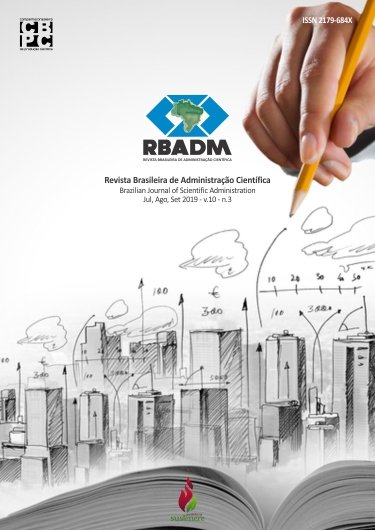Skills Development: Managers' Perception of Administrative Technicians at a Federal University
DOI:
https://doi.org/10.6008/CBPC2179-684X.2019.003.0005Keywords:
Career Plans, Skills, People management, Administrative Technicians in EducationAbstract
In the public service, the current configuration of human relations and intangible working tools, which are available to servers, should be responsible for the good performance of the service provided. People Management policies, especially Career Plans, should be key success factors in organizations. In this sense, in the Federal Institutions of Higher Education, the PCCTAE Careers and Careers Plan, as a career plan, intended to stimulate the professional development of the employees allied to the strategic objectives of these institutions. Given this context, the present study is concerned with assessing the career development behavior of Administrative Technicians in Education from the perception of senior management of a federal university, from a perspective of competence development in line with the institutional strategic objectives. Using semi-structured interviews with the senior management of a federal university as a form of data collection, and using content analysis as a data analysis methodology, the results showed the interviewees' perception that the concept of competencies in the service Audience is strongly related to socio-emotional factors pointing to attitudes and values ​​that guide commitment and ability to work in groups as essential to the performance of any profession in the public service. Regarding the possibilities of professional improvement through qualification and qualification courses, criticism was found from the interviewees regarding the incompatibility of the courses taken in relation to the professional activities developed in the exercise of the position. In the case of licensing of technicians, the difficulties related to the restricted number of employees in the administrative units, as well as the lack of elements that guarantee the temporary hiring of a substitute workforce, stand out as factors that act against the professional development of TAEs. According to the interviewees, over the 14 years of the PCCTAE's implementation, it was reported that career advancement elements have a strong financial impact and little focus on institutional interests, given the absence of an institutional personnel development policy that, if implemented , allow employees and senior management to align and agree on the need for development, taking into account not only the individual needs of technicians, but also the development of competencies that are aligned with the achievement of the institution's strategic objectives.
Downloads
Downloads
Published
Issue
Section
License
The CBPC - Companhia Brasileira de Produção Científica (Brazil CNPJ: 11.221.422/0001-03) the material rights of the published works. The rights relate to the publication of the work anywhere in the world, including rights to renewals, expansions and dissemination of the contribution, as well as other subsidiary rights. All electronically published works may subsequently be published in printed collections under the coordination of this company and / or its partners. The authors preserve the copyright, but are not allowed to publish the contribution in another medium, printed or digital, in Portuguese or in translation.









